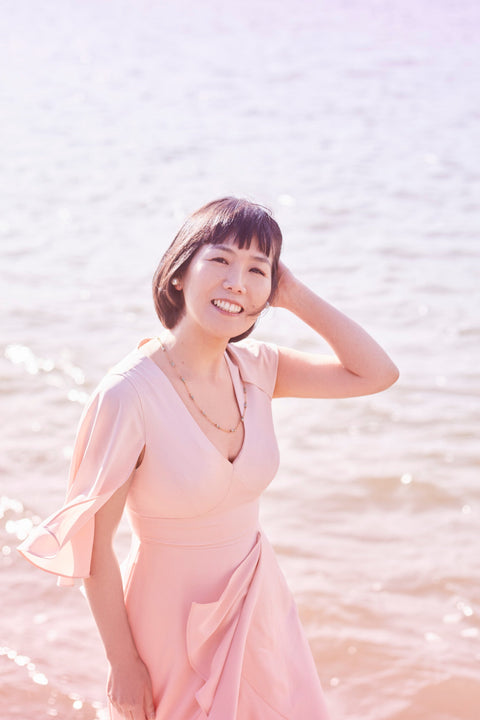
Musical Mission | MIGIWA MIYAJIMA 宮嶋みぎわ
Empowering People Facing Unprecidented Events
MIGIWA MIYAJIMA(宮嶋みぎわ/ MIGGY) is an exceptional woman and incredible musician who embodies the term resilience. She was chosen as the recipient of four impressive New York City grants across 2019 and 2020. Miggy finds these achievements exciting because her homeland of Japan does not offer grants of this sort. Miggy has been involved in 4 Grammy-nominated projects and has even been a voter for the Grammy awards since 2014! She was also an Artist In Residence with the Asian American Arts Alliance from 2020 to 2021.
Miggy has persevered through incredible challenges in life, including the 2011 Great Eastern Japan Earthquake, her mother’s battle with cancer, and the upheaval that relocating to another country brings. Throughout it all, Miggy constantly pushed herself to stay true to her passions and aspirations. Today, she is a leader transformed by overcoming fear and restrictive societal expectations.

Miggy shares, “One reason I decided to come to NYC was to overcome the discrimination I faced as a young female musician from both older male musicians and older music fans. I aim to make a positive social impact and work hard to ensure that the message of each piece of music I compose is very clear.”
IROHA: What projects are you currently working on? Please also feel free to mention what you have done most recently or plan to do in the near future.
MIGGY: Kyo Kasumi, a brilliant Tate master and choreographer, and I founded the “Samurai Jazz Project” in 2019 after observing that societies worldwide have become increasingly divided by a fear of what is unknown.

We dedicate ourselves to empowering people facing unprecedented events and hurdles by giving audiences a show of collaboration between Tate, a traditional Japanese performing art that creates realistic and dynamic fighting scenes between partners, and an American art form, big band jazz. We aim to deliver the message that “encountering something undiscovered can lead us to positive changes”.
Both Tate and jazz are heavily male-dominated art forms, so both as women and immigrant artists, we have always faced extra hurdles in our artistic pursuits. An additional goal of ours is to be trailblazers for other immigrant and women artists.
IROHA: How do you see your role in society or in business?
MIGGY: Women are still seldom seen in the world of jazz, and I am a woman from abroad – an even rarer breed. I want to be a champion for those out there struggling and want to open the door to more people like me. If they are people who have suffered, I hope to heal their wounds. If they are people already in a position of happiness, I hope to make them even happier. I'm hard at work each day perfecting my composition and piano skills to create tracks that can enrich people's lives.

IROHA: Based on your background, do you have any advice or a message for young people who want to follow in your footsteps?
MIGGY: Life is unexpected. There are disasters and illnesses, and we face the specter of death. Yet these experiences, the good and the bad, are what collectively make us who we are, shaping us. I know my mission is to share these things and my outlook on life with others through music. To me, the most important thing is sharing my story and inspiring others.
I have realized that everyone has a seed of hope. Sometimes, we keep it dried, and it doesn't do anything; but if we plant the seed and water it, it will grow into a flower. Everyone has this opportunity to flourish; the only difference is when each individual chooses to plant it. If you keep holding it in your hand and don't plant it quickly, your hope will not come as quickly as it did for those who planted it sooner. After any trauma or disappointment, you can plant your seed of hope and water it in your own way. With a little bit of time and effort, it will flower.
IROHA: What is your favorite sound?
MIGGY: The sound of wind in the trees and the rustling of leaves.
written by Jessica Woolsey / photography: Hayato Sakurai, Masa Tsujimura, Michael Yu
